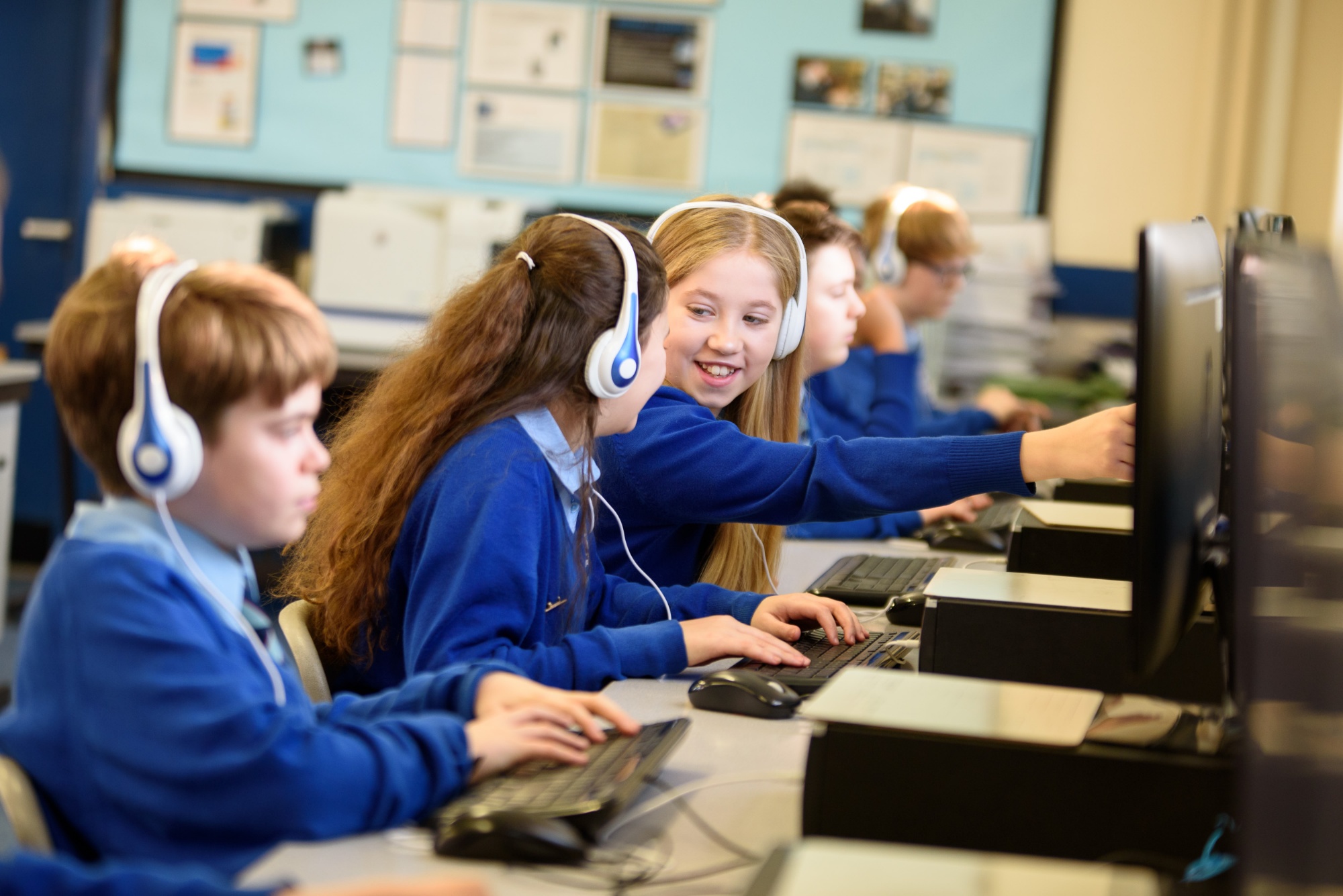ICT & Computing
Accelerated Curriculum (Years 7 & 8)
In years 7 & 8, all pupils receive a Computer Science lesson, once a week, delivered by subject specialist staff.
Warneford has taken on board direction from the Department of Education Computing programmes of study and has adapted its teaching materials to meet and challenge the needs of the pupils. The aim is for pupils to build skills, demonstrate these as capabilities and develop self-confidence. The pupils thoroughly enjoy developing their own websites, graphics and animations, using programming code to generate games or functions, learning about the hardware and software that make up the ICT systems, network system and staying Safe on line.

Core Information Technology at Key Stage 4 - iDEA
All students at Key Stage 4 follow an industry recognised award called iDEA –Inspiring Digital Enterprise Award. Pupils work through online badges to develop their talents and gain all-important knowledge and information about the digital world. The badges cover many topics such as:
Citizen – for example; looking at the internet, social media ethics, cloud technology, e-safety and cyber security.
Worker - for example; user interfaces, coding, internet of things
Maker – web design, gif making, graphic design
Entrepreneur – social media in business, big data, social selling, influencers plus many more.
Options at Key Stage 4
COMPUTER SCIENCE
Pupils can choose GCSE Computer Science. This is relevant to the modern, changing world of computing, it is designed to boost computing skills essential for 21st century.
OCR’s GCSE (9–1) in Computer Science will encourage learners to:
- understand and apply the fundamental principles and concepts of Computer Science, including abstraction, decomposition, logic, algorithms, and data representation
- analyse problems in computational terms through practical experience of solving such problems, including designing, writing and debugging programs
- understand the components that make up digital systems, and how they communicate with one another and with other systems
- apply mathematical skills relevant to Computer Science
|
Content Overview |
Assessment Overview |
|
|
Computer systems
|
Computer systems 80 marks Written paper
|
50%
|
|
Computational thinking, algorithms and programming
|
Computational thinking, 80 marks Written paper |
50%
|
|
Programming project **
|
Programming project 0 marks
|
|
http://www.ocr.org.uk/qualifications/gcse-computer-science-j276-from-2016
INFORMATION TECHNOLOGIES (IT)
This qualification is vital for those students who wish to develop applied knowledge and practical skills in the creative use of information technologies. This course will equip students with the necessary ICT skills to support other GCSE subjects, College, Careers and life. It looks at how to use different technologies (hardware and software applications), and tools and techniques used to select, store and manipulate data.
The student will be taught extremely powerful aspects of database and spreadsheet systems, as well as planning, using presentational software packages, the interpretation of computing laws and about cyber security.
It is broken down into 4 themes;
- Creatively developing meaningful information for customer distribution. Students will use the skills they have gained to develop a creative solution to a real world data problem
- Collecting, manipulating/processing and storing data
- Awareness of the importance of legal, moral, ethical and security factors
- Project initiation, planning and review
Assessment Method
|
Element |
Assessment Method |
Weight |
|
Unit R012 |
Written exam 1 hour 45 minutes |
50% |
|
Unit R014 |
Coursework assessment – students follow a scenario to create a system (20 hours approx.) |
50% |
https://www.ocr.org.uk/qualifications/cambridge-nationals/information-technologies-level-1-2-j808/
